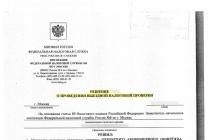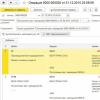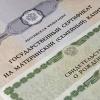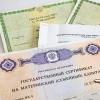What is every taxpayer afraid of? Of course, tax audits. In practice, questions often arise about the legality of certain actions performed by tax officials. Are documentary inspections of enterprises legal? How often and within what time frame does the tax office have the right to conduct an audit? In what forms are tax audits carried out? To be ready to defend their interests and know how to do it correctly, the taxpayer must have a clear understanding of his rights and responsibilities.
Federal Law N 137-FZ almost completely changed not only the procedure for conducting tax audits, but also the procedure for proceedings in cases of tax offenses. New edition of Art. 87 of the Tax Code of the Russian Federation clearly indicates that tax audits include only desk and field audits checks. Thus, counter audit is not a separate type of tax control. Thanks to this amendment, the legislator eliminates the inaccuracy that the tax services previously used to hold accountable the counterparties of the taxpayer being inspected based on the results of a counter-inspection. From now on, the tax authority does not have the right to draw up an act and make a decision in relation to the organization being inspected as part of a counter-inspection.
Let's take a closer look at on-site inspections.
An on-site tax audit is carried out on the territory of the taxpayer, and not the tax authority, which creates additional opportunities for tax authorities to check various aspects of the taxpayer’s activities that affect the correctness of calculation and payment of taxes and fees.
As practice shows, the prospect of conducting an on-site audit makes taxpayers noticeably nervous, and the point is not only that violations may be identified by the regulatory authority. An on-site audit is also a serious destabilizing factor that affects the daily work of the taxpayer, since it involves the distraction of employees from performing their job duties, the presentation and mass copying of documents used in production activities, and a number of other distractions.
In addition, conducting a tax audit on the taxpayer’s territory creates excellent ground for various types of abuses and violations both on the part of the taxpayer and on the part of tax officials. Often, in the context of direct contact, the taxpayer tries to “come to an agreement” with the inspector in exchange for ignoring real and imaginary violations, and the need to achieve planned indicators for tax collection leads to the fact that tax officials sometimes go beyond the scope of their official powers, carrying out individual control actions with violations and thereby damaging the activities of the taxpayer.
New edition of Art. 89 of the Tax Code of the Russian Federation contains clearer and more transparent rules defining the place and time of on-site inspections, as well as their subject and period of coverage. The norms regarding the number of exit and
repeated checks.
An on-site tax audit is carried out on the territory of the taxpayer, which is enshrined in sub-clause. 1 clause 1 art. 89 Tax Code of the Russian Federation. Subparagraph 2 of the same article provides an exception to this rule: an on-site tax audit may be carried out at the location of the tax authority if the taxpayer does not have the opportunity to provide premises for conducting an on-site tax audit. In this case, officials of the tax authority have the right to verify the absence of premises for conducting an inspection by inspecting the taxpayer’s premises used for business activities (Clause 2 of Article 91, Article 92 of the Tax Code of the Russian Federation). The taxpayer does not have the right to interfere with the work of tax officials who presented him with official identification and a decision to conduct an audit.
In paragraph 2 of Art. 89 of the Tax Code of the Russian Federation, a clarification has been made regarding which tax authority makes the decision on a tax audit and accordingly checks the taxpayer. Previously, this issue caused many disputes, which were resolved ambiguously by the courts. Some argued that neither the Tax Code of the Russian Federation nor other federal laws give the tax authorities at the taxpayer’s place of registration the exclusive right to conduct on-site tax audits (resolution of the Federal Antimonopoly Service of the Moscow District of February 3, 2004 in case No. KA-A40/11480-03). According to other courts, tax control is carried out through tax audits by officials of tax authorities within their competence (clause 1 of Article 82 of the Tax Code of the Russian Federation) and, as follows from the content of clause 1 of Art. 83 of the Tax Code of the Russian Federation, at the place of registration of the taxpayer (resolution of the Federal Antimonopoly Service of the Ural District dated June 15, 2004 in case No. F09-2341/04-AK).
It has now been established that Taxpayers have the right to be inspected only by the inspectorate located at the location of the organization. At the same time, an important clarification has been made: the decision to conduct an on-site tax audit of an organization classified as a major taxpayer is made only by the tax authority that has registered this organization as a major taxpayer.
The management of the organization learns what exactly the tax authorities want to check from the decision to conduct an audit. This document, which inspectors are required to present before starting the inspection, is drawn up on standard forms. The corresponding requirements for the decision were approved by Order of the Federal Tax Service of Russia dated December 25, 2006 N SAE-3-06/892@ "On approval of document forms used when conducting and processing tax audits; the grounds and procedure for extending the period for conducting an on-site tax audit; the procedure for interaction between tax authorities authorities to carry out orders to obtain documents; requirements for drawing up a tax audit report.” Article 89 of the Tax Code of the Russian Federation defines all the essential information that must be contained in the decision to conduct an on-site tax audit:
- full and abbreviated name or last name, first name, patronymic of the taxpayer;
- subject of verification, i.e. taxes, the correctness of calculation and payment of which is subject to verification;
- periods for which the audit is carried out;
- positions, surnames and initials of the tax authority employees who are entrusted with carrying out the audit.
The subject of an on-site tax audit is primary documents that give an idea of the compliance of the declared information with the actual information. It must be remembered that tax services can only check those issues and for the period that are specified in the decision to conduct an audit. If they require documents not related to the audit, then the taxpayer has the right to refuse them.
The audit can be carried out for one or more taxes. This fact is legally enshrined in paragraph 3 of Art. 89 Tax Code of the Russian Federation.
A clear definition of the subject of the audit will protect the taxpayer from repeated audits on similar grounds.
The Tax Code of the Russian Federation does not give tax authorities the right to make changes to an already made decision to conduct an audit, in particular, to indicate a different subject of the audit. The tax authority may make a new decision to conduct an audit, which will name taxes that were not previously covered, but this will be a different audit.
It should be taken into account that the Tax Code of the Russian Federation clearly states the dependence of the subject of an on-site tax audit on the object being inspected. So, if a taxpayer is being audited, then in accordance with clause 4 of Art. 89 of the Tax Code of the Russian Federation, the subject of inspection can be all types of taxes (federal, regional, local). And if an independent audit of a taxpayer’s branch (representative office) is carried out, then the subject of the audit can only be the regional and local taxes paid by it (clause 7 of Article 89 of the Tax Code of the Russian Federation).
An on-site tax audit can cover a period not exceeding three calendar years preceding the year in which the decision to conduct the audit was made (clause 4 of Article 89 of the Tax Code of the Russian Federation). This procedure for determining the audited period allows the tax authorities to actually increase the time frame of tax audits by one year (for example, the tax authority makes a decision to conduct an on-site audit on December 29, 2007. This means that it has the right to audit the years 2006, 2005 and 2004. But in fact the audit will begin only in 2008, when 2004 will already be beyond the three-year period).
In paragraph 8 of Art. 89 of the Tax Code of the Russian Federation states that the start date of an on-site audit is the date the tax authority makes a decision to conduct an on-site audit. Thus, the audit begins even before the taxpayer knows about it.
An on-site tax audit usually cannot last more than two months (clause 6 of Article 89 of the Tax Code of the Russian Federation), but it can be extended up to four months, and in exceptional cases - up to six months (Article 89 of the Tax Code of the Russian Federation). It is necessary to take into account that not four (six) months are added to the initial two months of verification, but the entire period is extended to four (six) months, i.e. the maximum verification period for extension may be four (six) months, and not six (eight) months.
Determining the grounds and procedure for extending the inspection period is entrusted to the Federal Tax Service of Russia. Until such a procedure is approved, local tax authorities cannot extend inspections.
The Federal Tax Service of Russia must establish, based on Art. 89 of the Tax Code of the Russian Federation: grounds for extending the inspection to four months; exceptional grounds for extending the inspection to six months; procedure for documenting the extension of the inspection.
Tax authorities often decide to suspend on-site audits. The head (deputy head) of a tax authority has the right to suspend an on-site tax audit for the following reasons:
- it is necessary to request documents (information) in accordance with paragraph 1 of Art. 93.1 of the Tax Code of the Russian Federation “Request for documents (information) about the taxpayer, payer of fees and tax agent or information about specific transactions”;
- it is necessary to obtain information from foreign government bodies within the framework of international treaties of the Russian Federation;
- an examination is necessary. Based on Art. 95 of the Tax Code of the Russian Federation, an examination can be carried out with the involvement of an expert. Expert is a person who has special knowledge in a certain area. An examination is carried out if special knowledge in science and technology is required to clarify emerging issues. The expert is selected by the tax inspectorate, but if the expert chosen by it does not suit the organization being inspected, then he may be challenged. The tax inspectorate will be able to satisfy the challenge only if it is proven that the expert does not have the necessary knowledge, is not impartial, or other similar grounds are given. The examination is appointed by a resolution of the official of the tax authority carrying out the on-site tax audit. The resolution specifies the grounds for ordering the examination, the name of the expert or the name of the organization in which the examination should be carried out, the questions posed to the expert, and the materials made available to the examination. If the conclusion is insufficiently clear or complete, an additional examination may be ordered. A re-examination is also possible if the expert’s conclusion is found to be unfounded or casts doubt on its correctness;
- documents submitted by the taxpayer in a foreign language are required to be translated into Russian. According to paragraph 1 of Art. 97 of the Tax Code of the Russian Federation, when carrying out tax control, if necessary, a translator can be involved. Many disputes arise due to the fact that the taxpayer submits documents in a foreign language, and the tax authority refuses a VAT refund only because the documents are not translated into Russian (see the resolution of the Federal Antimonopoly Service of the West Siberian District dated March 16, 2004 in the case N Ф04/1335-405/А27-2004, resolution of the Federal Antimonopoly Service of the Moscow District dated January 24, 2006 in case No. KA-A40/13839-05-P, resolution of the Federal Antimonopoly Service of the Moscow District dated December 7, 2005 in case No. KA-A40 /12189-05). As a rule, the courts take the side of the taxpayer, since the tax authority does not use its right to hire a translator.
The suspension and resumption of an on-site tax audit is formalized by a corresponding decision of the head (deputy head) of the tax authority conducting the said audit.
Suspension is allowed no more than once for each person from whom documents were required. The total period of suspension of an on-site tax audit cannot exceed six months. If it was suspended on the basis of information provided by foreign government authorities within the framework of international treaties of the Russian Federation, and within six months the tax authority was unable to obtain the requested information from these authorities, the period of suspension of the inspection may be increased by three months.
During the period of suspension of the on-site tax audit, the actions of the tax authority to request documents from the taxpayer are suspended, to whom in this case all originals requested during the inspection are returned, with the exception of documents received during the seizure, and the actions of the tax authority on the territory (on the premises) are also suspended ) taxpayer related to the specified audit (clause 9 of Article 89 of the Tax Code of the Russian Federation).
A clear definition of the end date of the audit guarantees the taxpayer stability in carrying out business activities, and also protects him from arbitrary and prolonged interference of the tax authority in his activities. In paragraph 15 of Art. 89 of the Tax Code of the Russian Federation states that on the last day of an on-site tax audit, the inspector is obliged to draw up a certificate that records the subject of the audit and the timing of its conduct, and hand it over to the taxpayer (his representative). It turns out that the day the certificate is presented is the last day of the inspection. Nevertheless, in paragraph 8 of Art. 89 of the Tax Code of the Russian Federation states that the inspection period is calculated until the day of drawing up, and not delivery of the certificate of the inspection.
Clause 15 of Art. 89 of the Tax Code of the Russian Federation separately provides that the tax authority can send the taxpayer a certificate of the audit carried out by registered mail if he avoids receiving it. The burden of proving the fact of the taxpayer's evasion from obtaining a certificate lies with the tax authority. However, there is another position, which is that the end date of the audit coincides with the date of drawing up the certificate, and violation of the deadline for delivering the certificate does not entail any negative consequences for the tax authority.
From January 1, 2007, a limit was introduced on the number of inspections carried out. In relation to one taxpayer (fee payer, tax agent), tax authorities do not have the right to conduct more than two on-site tax audits during a calendar year, with the exception of cases where the head of the Federal Tax Service of Russia makes a decision on the need to conduct an on-site tax audit of the taxpayer in excess of the specified limit.
Also, tax authorities do not have the right to conduct two or more on-site tax audits on the same taxes for the same period.
However, it should be borne in mind that when determining the number of on-site tax audits of a particular taxpayer, the number of on-site tax audits of its branches and representative offices is not taken into account.
The number of inspections in a calendar year is determined by the start and end dates of their conduct, i.e., by the dates of the decision to conduct the inspection and the certificate of the inspection, respectively. The dates of signing the act and decisions based on the results of the inspection are not taken into account.
Two grounds have been established for conducting a repeat on-site inspection:
- a re-inspection is carried out by a higher tax authority in order to monitor the activities of the tax authority that conducted the inspection;
- a repeat audit is carried out by the tax authority that previously conducted the audit if the taxpayer submits an updated tax return, which indicates the amount of tax in an amount less than that previously declared. As part of this repeated on-site tax audit, the period for which the updated
tax return.
It is important for taxpayers to keep in mind that when conducting a repeat on-site tax audit, a period not exceeding three calendar years preceding the year in which the decision to conduct a repeat on-site tax audit may be reviewed.
A repeated on-site inspection carried out in connection with the reorganization or liquidation of a taxpayer organization (payer of fees) may be carried out regardless of the subject of the previous inspection.
In the process of conducting an audit, the tax authority may determine the advisability of conducting on-site tax audits of counterparties and (or) affiliates of the inspected enterprise. In the plan for conducting on-site tax audits, tax authorities include, first of all, those taxpayers in respect of whom there is information about their participation in schemes for tax evasion or minimization of tax liabilities and (or) for whom the results of an analysis of financial and economic activities indicate possible tax violations.
On May 30, 2007, the Federal Tax Service issued Order N MM-3-06/333@, which approved the concept of a planning system for on-site tax audits. This document establishes the basis for planning on-site tax audits. It should be said that similar documents existed before, but they were intended for official use and were not officially published. According to the new concept, planning on-site tax audits is an open process based on the selection of taxpayers to conduct on-site tax audits based on the risk criteria of committing a tax offense.
Now any taxpayer, represented by a chief accountant, manager, or internal auditor, can independently assess the likelihood of a tax audit, since the tax authorities have established 11 criteria for identifying objects that require operational control:
- The tax burden of a given taxpayer is below its average level typical for business entities in a particular industry (type of economic activity).
- Reflection of losses in accounting or tax reporting over several tax periods.
- Reflection in tax reporting of significant amounts of tax deductions for a certain period.
- The growth rate of expenses outpaces the growth rate of income from the sale of goods (works, services).
- Payment of the average monthly salary per employee is below the average level typical for economic entities of a particular type of economic activity in a constituent entity of the Russian Federation.
- Repeatedly approaching the maximum value of the indicators established by the Tax Code of the Russian Federation, which grant taxpayers the right to apply special tax regimes.
- Reflection by an individual entrepreneur of the amount of expenses that is as close as possible to the amount of his income received for the calendar year.
- Construction of financial and economic activities on the basis of concluding agreements with counterparties-resellers or intermediaries, i.e. chains of counterparties are built without taking into account reasonable economic or other reasons (business goals).
- Failure by the taxpayer to provide explanations to the notification of the tax authority about the identification of discrepancies in performance indicators.
- Repeated deregistration and registration with the tax authorities of the taxpayer in connection with a change in location (“migration” between tax authorities).
- Significant deviation of the level of profitability according to accounting data from the level of profitability for a given field of activity according to statistics.
It is also provided that, in addition, when considering these situations, the tax authority will have to analyze the possibility of extracting or the presence of an unjustified tax benefit, including under the circumstances specified in the Resolution of the Plenum of the Supreme Arbitration Court of the Russian Federation dated October 12, 2006 No. 53.
I would like to hope that the appointment of on-site audits by tax authorities will become fully regulated. This will help eliminate arbitrariness in their implementation.
*1) Federal Law of July 27, 2006 N 137-F3 “On amendments to part one and part two of the Tax Code of the Russian Federation and to certain legislative acts of the Russian Federation in connection with the implementation of measures to improve tax administration” (as amended and additions dated December 30, 2006) // ATP "Garant".
Journal "Legislation" N 5/2008, L.F. Maksimova, accountant-auditor
Any accountant awaits an on-site tax audit (ATA) with apprehension. At the same time, with bated breath, he listens to the stories of his colleagues and reads discussions on forums about how and by whom such checks were carried out. But, unfortunately, not everyone gives the correct information, so on-site inspections are surrounded by various myths. We want to dispel the most common misconceptions about the likelihood of conducting an INP.
MYTH 1. During the first 3 years of existence there is no risk of inspection
Most likely, this misconception arose due to an incorrect interpretation by accountants of the Law, which protects the rights of legal entities and entrepreneurs during inspections by government agencies and Law of December 26, 2008 No. 294-FZ. This Law states that regulatory authorities do not have the right to inspect an organization or individual entrepreneur (IP) until the expiration of 3 years from the date of registration, that is, the first 3 years of the company and individual entrepreneur are not affected. pp. 2, 8 tbsp. 9 of the Law of December 26, 2008 No. 294-FZ. However, many do not pay attention to the fact that this Law does not apply to tax control. subp. 4 clause 3.1 art. 1 of the Law of December 26, 2008 No. 294-FZ. And the Tax Code does not contain any restrictions regarding inspections of organizations and individual entrepreneurs operating for less than 3 years.
Of course, tax authorities are interested in additional assessments. And the shorter the period under review, the less chance they have of finding worthy violations. However, an organization that has been in operation for only a year can also attract attention, for example, if:
- <или>The organization claimed a large amount of VAT for reimbursement from the budget. Typically, tax officials make every effort to avoid refunding anything. In such a situation, cameramen begin to work first. And if they did not have time to find grounds for refusing compensation, then the heavy artillery - the “travelers” - are brought in;
- <или>Tax authorities received a request from the Ministry of Internal Affairs to conduct a joint audit. Here we are talking about organizations in relation to which the police carried out operational measures, for example, in connection with someone’s complaint. And during such events, they assumed that the organization was cheating with taxes.
So, if you do not refund VAT, and in relation to other taxes you can be called conscientious, you don’t have to be afraid of GNP.
MYTH 2. There will be an audit if a decision is made to liquidate
Having informed the Federal Tax Service about the decision to cease operations subp. 4 p. 2 tbsp. 23 Tax Code of the Russian Federation; clause 1 art. 20 of the Law of 08.08.2001 No. 129-FZ, members of the liquidation commission are waiting with trepidation for the inspectors. And they do it in vain.
In fact, the tax authorities don’t check everyone decided to liquidate. After all, in this case, the inspectors will have to comply with the deadline for filing creditor claims (most often this is 2 months) clause 1 art. 63 Civil Code of the Russian Federation, not only check the organization, but also: write an act; make a decision based on the results of the inspection; wait for it to come into force; make a demand for payment of taxes. And this is not always realistic. However, in connection with liquidation, tax authorities have an order to check:
- largest taxpayers (for this Federal Tax Service);
- organizations in respect of which tax authorities have information about violations of tax laws.
In other cases, as a rule, tax authorities decide that it is inappropriate to conduct an internal tax return on a liquidating organization. And even if this decision is agreed upon with the Federal Tax Service (this practice exists in some regions), the department, as a rule, supports the inspectorate’s decision that an inspection is not necessary.
But entrepreneurs can be checked even after registering the termination of business activity. After all, a person still continues to be responsible for debts to the budget that arose during the period of business activity. True, it is possible to recover additional charges only through the court. Articles 19, 48 of the Tax Code of the Russian Federation; Determination of the Constitutional Court dated January 25, 2007 No. 95-О -О; Resolution of the Federal Antimonopoly Service of the North-Western Territory of November 25, 2009 No. A52-1130/2009; Determination of the Moscow City Court dated August 17, 2010 No. 33-23193. In this case, the VNP can be carried out for a period not exceeding 3 calendar years preceding the year in which the decision to conduct the inspection was made. For example, in 2012 they can check the years 2009-2011. clause 4 art. 89 Tax Code of the Russian Federation That is, if an entrepreneur ceased operations in 2008, then now it is no longer possible to check him. But, as a rule, tax officials believe that you can’t take much from most entrepreneurs, and therefore they don’t touch them.
MYTH 3. If you come to the attention of the Federal Tax Service - be checked
This is wrong. If the Federal Tax Service has information about possible violations of tax legislation by an organization, this data is sent to the inspectorate where the organization is registered. Tax officials process the information received and independently assess the feasibility of conducting an IRR. Therefore, even if the Federal Tax Service has an interest in the company, the inspection still has the last word.
But this situation should not be confused with task Federal Tax Service, where there is a clear indication of when inspectors should come out for inspection.
MYTH 4. Checks can be avoided if you are included in the GNP plan, but change the Federal Tax Service
It is forbidden! Checking will be required! If you were included in the inspection plan, then as soon as you submit an application to amend the constituent documents in connection with a change of address, the “visitors” will make a decision on conducting an internal tax inspection. At the same time, they can also attract inspectors from your new Federal Tax Service to check. Most often this happens when an organization “moves” to another region.
If, for some reason, the “travelers” from the old Federal Tax Service do not have time to make this decision before the entry about the change of address appears in the Unified State Register of Legal Entities, then they no longer have the right to check you. clause 2 art. 89 Tax Code of the Russian Federation. True, inspectors will be punished for not starting the inspection on time. Therefore, they can try to make a decision retroactively, but this is quite risky: if this is discovered, then we will be talking about falsification of documents. Most likely, the inspectors who missed the deadline will tearfully ask their colleagues from your new inspection to make a decision and still carry out the VNP.
MYTH 5. Inspection is guaranteed if you work at a loss.
This is not entirely true. Of course, such organizations are under the close attention of tax authorities. But this does not mean that an organization automatically falls into the GNP plan if it operates at a loss for several years. After all, “travelers” need to replenish the country’s budget, and the likelihood of covering the loss, and even charging additional income tax, is small. Therefore, if it is not possible to charge any additional taxes other than income tax, such an organization will most likely not be touched.
MYTH 6. There will be no GNP if you do not fall into any of the risk zones
Everyone knows that the tax service has developed criteria for self-assessment of tax risks in Order of the Federal Tax Service dated May 30, 2007 No. MM-3-06/333@. At the same time, if you have not identified these risks, this does not guarantee that “travelers” will not come to visit you. The basis for including an organization in the GNP plan may be an assignment from a higher tax authority, or information received from external sources, for example, from other Federal Tax Service Inspectors or from the Ministry of Internal Affairs. And organizations that are the largest taxpayers include GNP in the plan Necessarily even in the absence of risk zones and other grounds.
Probably, the likelihood of inspectors coming with the VNP is surrounded by myths because no one knows when to expect them. They “visit” someone every 3 years. And someone has been working for 10 years, but has never seen a “travelling” worker. If you are one of the latter, we wish you to continue to work calmly.
The Tax Code of the Russian Federation regulates the procedure for conducting an on-site tax audit.
On-site tax audit carried out on the territory (premises) of the taxpayer based on the decision of the head (deputy head) of the tax authority.
If the taxpayer does not have the opportunity to provide premises for conducting an on-site tax audit, an on-site tax audit can be carried out at the location of the tax authority.
The decision to conduct an on-site tax audit is made by the tax authority:
- at the location of the organization or at the place of residence of the individual;
- tax authority that registered the organization as a major taxpayer.
Object of on-site tax audit:
- financial and economic transactions of the taxpayer for the entire reporting period, but no more than three years, preceding the appointment of this type of inspection.
Subject of on-site tax audit:
- correct calculation and timely payment of taxes.
On-site tax audit is carried out using continuous method, through which not only all the taxpayer’s documents related to the payment of taxes are checked, but also an inventory of property is carried out, an inspection (survey) of the territory and premises of the taxpayer used by him to generate profit (income).
During an on-site tax audit, tax officials have extensive procedural rights, in particular:
- seize documents evidencing the fact of a tax violation;
- call and question witnesses;
- attract specialists and (or) translators;
- attract witnesses;
- order an examination.
An independent on-site tax audit of a branch or representative office is carried out on the basis of a decision of the tax authority at the location of such a separate division.
The decision to conduct an on-site tax audit must contain the following information:
- full and abbreviated name or last name, first name, patronymic of the taxpayer;
- the subject of the audit, that is, taxes, the correctness of calculation and payment of which is subject to verification;
- periods for which the audit is carried out;
- positions, surnames and initials of the tax authority employees who are entrusted with carrying out the audit.
An on-site tax audit in relation to one taxpayer can be carried out on one or more taxes.
If the taxpayer submits an updated tax return, as part of the corresponding on-site tax audit, the period for which the updated tax return was submitted is checked.
Tax authorities do not have the right to:
- 2 or more on-site tax audits on the same taxes for the same period;
- in relation to one taxpayer, more than 2 on-site tax audits during a calendar year, with the exception of cases where the head of the federal executive body authorized for control and supervision in the field of taxes and fees makes a decision on the need to conduct an on-site tax audit of the taxpayer in excess of the specified limit.
When determining the number of on-site tax audits of a taxpayer, the number of independent on-site tax audits of its branches and representative offices is not taken into account.
Deadlines for on-site tax audit
On-site tax audit cannot last more than 2 months. This period may be extended up to 4 months, and in exceptional cases - up to 6 months. The period for conducting an on-site tax audit is calculated from the day the decision to order the audit is made until the day the certificate of the audit is drawn up.
If necessary, authorized officials of tax authorities carrying out an on-site tax audit may conduct an inventory of the taxpayer’s property, as well as inspect production, warehouse, trading and other premises and territories used by the taxpayer to generate income or related to the maintenance of taxable objects, in the manner established Article 92 of the Tax Code of the Russian Federation.
If the officials carrying out the on-site tax audit have sufficient grounds to believe that documents evidencing the commission of offenses may be destroyed, hidden, altered or replaced, these documents are seized in the manner prescribed by Article 94 of the Tax Code of the Russian Federation.
On the last day of an on-site tax audit, the inspector is obliged to draw up a certificate of the audit, which records the subject of the audit and the timing of its conduct, and hand it over to the taxpayer or his representative.
If the taxpayer (his representative) avoids receiving a certificate of the audit, the said certificate is sent to the taxpayer by registered mail.
The essence of any tax audit is to analyze how correctly and to what extent the requirements of the Tax Code of the Russian Federation are met.
What types of checks exist
The legislation of the Russian Federation provides for 2 main types of tax audits: desk and field. Let's look at what their main features are and how they differ from each other.
On-site inspection.
If they prove that this is being done illegally, you will be charged additional taxes that you need to pay when applying.
After checking the legality, inspectors will analyze how correctly you keep records. But let us immediately note that individual entrepreneurs are not obliged.
Checking IP on UTII
To begin with, it is worth noting that such a check is applied if you have already committed violations of tax laws.
This could be incorrect filling out of declarations, violation of deadlines for filing, or suspicion of concealing income.
In general, checking for UTII consists of confirming physical or other indicators that are used to calculate tax: calculation of the average headcount, title documents for premises, territories, if your business is a parking lot, as well as concluded agreements and other documents.
Check when closing an individual entrepreneur
Even if you are already safe, they may come to you within three years.
Although it is worth saying that an on-site inspection is not carried out in all cases and is not mandatory. But even if your business is in process, tax authorities have the right to check you.
Of course, inspectors will not come to your home, but they can do the following:
- Conduct an inventory;
- Request documentation related to the activities of your individual entrepreneur;
- Inspect the premises (if any).
Tax specialists have the right to conduct on-site audits in relation to your individual entrepreneur within 36 months after you close it.
On-site inspection of an LLC: reasons for appointment
- Reports for more than 2 years reflect that the company is unprofitable;
- Cost growth outpaces income growth;
- You have repeatedly changed your tax service provider;
- There is reason to believe that your company is cooperating with fly-by-night companies;
- You do not provide explanations for discrepancies in reporting data.
This list may be supplemented depending on the situation.
Additional activities
During the inspection process, inspectors may carry out additional control measures:
- Request papers and seize them;
- Inspect the territory and property;
- Conduct an inventory of property;
- Conduct questioning of witnesses;
- Use the services of experts and a translator.
Such activities can be carried out by inspectors only in compliance with all legal requirements.
LLC inspection deadlines
The standard period is 2 months. But it can be extended for various reasons up to 6 months.
The reasons are:
- The company is very large;
- It is necessary to carry out additional verification activities;
- The LLC has separate divisions;
- You submitted documentation late.
Checking LLC on the simplified tax system
The procedure is almost similar to the IP verification. First, tax officials find out whether you have the right to apply the simplified taxation system and whether you comply with all the requirements for this taxation regime.
Then the simplified calculations of tax payments are checked, after which the correctness of filling out the documentation and the procedure for carrying out business activities. operations.
How is a tax audit carried out during the liquidation of an LLC?
When on-site inspection activities are carried out almost always.
They will check your information on absolutely all tax payments for the last 36 months. It does not matter when your company was inspected as planned.
The timing will depend on the state of the documentation, how the liquidation commission behaves, and what the structure of your company is.
If your company has branches, they will also be checked.
Recording the test result
All results will be reflected in the protocol and final certificate. It reflects the amount of debt, as well as information about violations of the law (if any were detected).
If you do not agree with the results of the inspection, within 15 days from the date of receipt of the results of the inspection, you can appeal them.
How to avoid verification during liquidation
There are several legal options to avoid communicating with tax authorities:
- Make all payments on time and in full;
- Sell the company;
- Complete liquidation with a zero balance;
- Seek help from intermediaries.
Desk audits of individual entrepreneurs and LLCs
This event is primarily aimed at checking whether you comply with the requirements of tax legislation.
It is carried out on the territory of the Federal Tax Service after you submit your declaration. In this case, permission from the inspection management to conduct an inspection is not required.
Federal Tax Service inspectors are not required to notify you of the inspection. You will learn about it if the inspectors have questions for you or require clarification.
You will have to provide the documentation that the tax office decides to require within ten days after you receive a request for this.
If you refuse to provide them, you may be subject to a fine or administrative liability.
The audit will be carried out for the period that you previously indicated in the declaration.
As for the deadline, it is three months, and its countdown begins from the date following the date of submission of the declaration to the Federal Tax Service.
A desk audit of LLCs working under the simplified tax system is carried out according to the same principles as an audit under the general taxation system.
Changes in inspections this year
As for the changes that will take place this year, one thing is worth noting: inspections will become more thorough and dangerous for entrepreneurs.
This becomes possible thanks to the new software of tax inspectorates, which analyzes in detail the submitted declarations, reports, the ratio of benchmark indicators and thus generates a list of candidates for inspection. The analysis takes place practically without the participation of a tax inspector, and the results are presented in a short certificate.
So, for example, the introduction of the electronic ASK VAT system, currently in its 2nd version, has made it possible to reduce illegal VAT refunds from the budget by almost 8 times.
The mandatory use of online cash registers that transmit information to the tax office in real time also makes it possible to stop non-payment of VAT and minimize “gray” tax evasion schemes.
Another innovation is that a desk audit can be carried out by a different Federal Tax Service than the one to which you usually submit reports. This is done in order to exclude any personal contacts, as well as to increase the efficiency of the events.
Currently, according to statistics, the highest tax collection occurs as a result of desk audits, rather than on-site audits. This means that the likelihood that you will be required to provide explanations and make larger additional charges than before increases.
The most thorough and dangerous checks are those that the Federal Tax Service conducts together with law enforcement officers. The number of such checks has already exceeded 4.5 thousand.
Conclusion
Every manager or business owner should understand that it is unlikely that it will be possible to avoid inspection. Your task is to comply with all legal requirements, and if inspectors come, to provide them with the opportunity to carry out legal actions.
The tax office has different audits, we are interested in two - desk and field. The purpose of the audits is the same: to make sure that the company pays as much taxes as necessary. And if he underpays, demand the missing amount.
Desk check. The tax office conducts a desk audit without visiting the company. To check, tax officials study the declarations and ask for clarification if any item raises questions.
For a desk audit, you do not need to obtain permission; the tax office has the right to check the declarations of any company. But there is a limitation: the tax office can request clarification only for a specific declaration. The company submits its declaration for the third quarter, which means the questions are related to transactions for the third quarter.
Scan of a tax request as part of a desk audit
On-site inspection. An on-site inspection can take place at the company's office or at an inspection department, but usually inspectors come to the office. Inspectors request documents, inspect premises, and talk with employees.
The tax authorities' task is to figure it out on the spot. For example, a company buys crushed stone according to documents, but there is no warehouse, employees, or transport for transportation. Perhaps the purchases are fictitious.
The tax office does not have the right to just come, first it must collect evidence in favor of suspicions of underpayment of taxes, draw up an inspection plan for the next quarter and coordinate it with the higher tax authority, its official name is the Department of the Federal Tax Service of Russia for the relevant subject.
Should the tax office warn about an audit?
There is no law that obliges the tax office to warn you of your arrival, so it will not be possible to demand a warning.
In practice, companies usually become aware of the audit. This happens when the tax office calls the company to hand over a decision to order an audit. The tax office has a notice to call the company.
The inspection decision is an official document. Meaning: such and such a tax office assigns an on-site audit to such and such a company.

Scan of the decision on on-site inspection
The problem with notification is timing. From experience, the company receives it a week before the start of the on-site inspection, and this is too little time to prepare.
You can find out about the on-site inspection earlier. There are indirect signs that help you understand that the company is of interest to the tax authorities. If a company finds one of the signs, it has three to six months to prepare for an on-site inspection.
Inquiry about transactions for three years
The tax office does not come to a company at random; first it finds out whether there is a reason for an on-site audit. Pre-test analysis helps with this.
Pre-inspection analysis is the official name for the process when inspectors collect a dossier on a company. It includes everything that the tax office understood from the documents. For example:
- what kind of reporting the company submitted and what errors the inspectors found;
- how much taxes did you pay and how much do your competitors pay?
- what goods were purchased, from whom, in what volume and for how much;
- from whom did she receive money, how much and for what;
- number of employees;
- bank accounts;
- what kind of transport did you buy and were there any fines from the traffic police;
- are there any one-night stands among the partners;
- were there any fines from the traffic police;
- list of affiliated and interdependent persons. For example, a husband is a director in one company, a wife in another. At the same time, companies buy goods from each other.
The tax office collects information from open sources, information from other government agencies, for example from the traffic police or the registry office. It also requests information from the company.
To understand what kind of request this is, you need to look at the justification. If the tax office requests documents during a desk audit, it writes this: the justification for the request is a desk audit.
When it comes to pre-audit analysis, the tax office most often refers to Article 93.1 of the Tax Code. A special feature of the request is questions about transactions for two to three years.

Scan of the tax request as part of the pre-audit analysis
When making your request, pay attention to what the tax office is asking about. This helps to understand what caused suspicion.
The tax office requested the Yagodnaya Polyana company to analyze its prices and competitors. "Polyana" sent.
It turns out that the tax office was looking for confirmation that Polyana was lowering prices for a specific client. Because this client is the business of the wife of the owner of Yagodnaya Polyana, and low prices are a way to reduce the tax base and pay less taxes.
How to respond to tax inquiries is the topic of a separate article. For now, remember this: if you see a request for transactions over several years and this request is outside the scope of the audits, it means that the tax office will come soon.
Call for commission
The tax office has the right to call the company for a commission. Commission - conversation with the tax inspector: the inspector calls the director to his office, asks questions and records the answers.
The tax office calls you to the commission whenever it wants: maybe after a desk audit, before a desk audit, or on-site, for a pre-audit analysis.
When the tax office calls you to a commission - a letter from the tax office
The tax office has different reasons for the commission, they are described in the tax letter AC-4-2/12722. The letter is no longer valid, but the reasons for the commission have not changed. Among the reasons:
- VAT gaps;
- too large a share of VAT deductions;
- too little taxes paid compared to companies;
- the company has been in losses for two years in a row;
- suspicions that the company pays wages in an envelope.
The tax office conducts commissions to figure out why the company has such indicators and convince them to pay additional taxes. However, the company has no obligation to answer questions or agree on everything. In general, you can listen to questions and remain silent in response, at least an hour, at least two.
The tax office does not have the right to fine a company because of responses to commissions or demand additional taxes to be paid immediately after the commission. But if the director’s answers raise suspicions, the tax office will begin to dig deeper. Just with the help of an on-site inspection.
Commissions are not an absolute evil; they help companies. With the help of questions at the commission, it is easier to understand what causes suspicion. If you have questions about VAT, then you need to check the VAT: how much the company deducts and why, and perhaps immediately pay additional tax. What if the company manages to fix everything, and the tax office changes its mind about coming for an audit. And if he arrives, the check will be smoother.
Partner verification
The tax office checks not only the company itself, but also its partners and clients. This is called a counter check. The mechanism is the same: the tax office requests documents and information, and the company responds.
The tax office is collecting a dossier on the Yagodnaya Polyana store. The store’s partner is the wholesaler “Lukoshko”.
To learn more about Polyana, the tax office requests information from Lukoshka: supply agreements, invoices, reports - everything that shows how much Polyana purchases, how often and for what amounts.
The query helps to compare company information. Or it could be this: according to the documents, “Polyana” bought pears for one hundred thousand rubles, and according to the documents, “Lukoshka” bought apples. Or maybe “Lukoshka” doesn’t have documents from “Polyana” at all, as if she didn’t buy anything.
There is a way to understand who the tax office is collecting a file on. To do this, look at which tax office the request came from.
When the tax office requests documents, it sends a request - this is an official document. If the tax office does not send a request on its own initiative, it says so. To do this, an order from another tax office is attached to the request.
Using an example. The tax office sends a request for information. The request contains a link to the order of another tax office:

Scan of the tax request for a counter audit
And this is an order to request documents:

Scan of an order from one tax office to another
There is no automatic way to know whether the IRS is conducting counter audits or not. Option one: be friends with the accounting department and director of each partner and client. What if they notice a request that is not theirs and call to warn you.
Request from the police
It’s not just the tax office that is interested in the company’s affairs—the police are interested too. The police request documents before initiating a criminal case - this is part of the pre-investigation check, and after.

Scan of the police request
From experience, if a company receives a request, most likely the company is among the suspects for illegal cash withdrawals. For example, I purchased crushed stone from a supplier, but the supplier turned out to be one-day. And not just a one-day scam, but one of the companies that participates in the money withdrawal chain. And there are dozens of such companies in the chain.
If you receive a request from the police, it’s time to prepare for an on-site inspection. And during this time, I advise you to double-check your suppliers, clients - everyone who pays you and to whom you pay.
Most likely, an experienced accountant will notice signs of a future audit and tell the director. Just in case, I advise you to periodically ask your accountant if there are requests from the tax and police and what is included in them. This is a way to find out about the on-site inspection in advance and have time to prepare.














